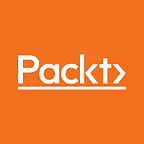Cognitive IoT — The Impact of Artificial Intelligence on IoT
With the evolution of Internet of Things (IoT), the world of technology as we knew it witnessed a huge disruption, what with IoT’s amazing ability to gather and crunch information from a distributed set of sensors. The purpose of deploying IoT is to collect and analyze data and accordingly yield results as desired by the user.
This in itself is a huge accomplishment, no second thoughts about that! However, can you imagine what can be achieved with an intelligent network of connected things, a network that can analyze data and accordingly act upon it with minimal human interference? This is where Artificial Intelligence (AI) comes into play.
AI can systematically sort the data crunched by IoT and effectively take suitable actions in an organized manner. Consequently, IoT coupled with AI can prove to be a blessing for verticals that can benefit from seamless automation of mundane tasks such as workflow documentation, maintenance notifications, etc.
AI-powered IoT
IoT powered with AI can work wonders in carrying out autonomous decision making, self-learning, and several other complex tasks. This article takes a look at how AI can enhance the manufacturing, retail, and healthcare domains.
Industrial IoT (IIoT)
Needless to say, IoT has impacted several industries in a huge way by ushering improved interoperability between machines and sensors, and carrying out autonomous decision making in several critical cases. Next up, you’ll see some industrial domains that can hugely benefit from AI-backed IoT.
Manufacturing
IoT has probably had the biggest impact on the manufacturing sector so far, with reports estimating investments of up to $70 billion in 2020. This comes to around a 240% increase from the $29 billion invested in IoT in 2015. AI can streamline and enhance several manufacturing processes such as predictive maintenance and supply chain optimization.
Predictive Maintenance
Predictive maintenance is the process of collecting and evaluating data about machines’ health so as to increase efficiency and optimize maintenance. It involves determining the condition of machines and predicting when they would need maintenance. This is where AI can come in handy to make the entire process seamless.
A German-based startup, Konux, has developed a machine learning-powered monitoring system for train switches. Existing train networks can be retrofitted with the Konux switch sensor, which can then perform real-time monitoring of track conditions and rolling stock. The data is wirelessly transfered to the Konux Kora platform, which then deploys machine learning-based algorithms to alert relevant stakeholders about any problems and also drives recommendations for maintenance.
Supply Chain Optimization
An IoT-optimized supply chain can provide manufacturers with real-time analysis of data to be acted upon before the onset of any major problem, thereby significantly mitigating inventory and capital requirements. Most companies have smart shelves that keep track of the removal and addition of products to the inventory. These smart shelves are connected via the IoT network to the central engine, which can then aid in planning and sensing demand. This is where AI-powered decision support systems can help translate the demand signals into according production and order processes.
Retail
IoT adoption in retail has the potential to redefine the entire domain. With in-store advertising and gesture walls powered by IoT, customers can easily search for merchandize and offers, and make a purchase decision with simple gestures. IoT also makes automated checkouts or self-checkout kiosks a reality, eliminating the hassles of long queues. Customers can also pay via app-based payment systems which will just scan the QR code embedded on the products, making customer experience seamless.
Moreover, IoT-enabled sensors can help retailers extract consumer insights, which can then help them in further optimizing their store. They can also leverage AI-enabled IoT to send promotional texts to customers who are in the store’s vicinity. For instance, Apple’s iBeacon enables devices to alert apps and websites about customer location. Retailers can also adopt Inventory Optimization via digital shelf and RFID techniques to effectively manage inventories.
Healthcare
IoT in healthcare is proving to be a boon for patients by decreasing costs and reducing multiple visits to doctors. With these healthcare solutions, patient monitoring can be done in real-time, which can aid in treatment well in advance before the disease reaches a malignant stage.
Such IoT-enabled healthcare solutions can cut down on system costs and errors through accurate collection of data, automated workflows,and data-driven decisions. Also, as you may be aware, drug creation and management accounts for one of the biggest expenditures of the healthcare industry. AI-enabled IoT can help manage these costs better.
Initially, IoT was all about monitoring data and extracting real-time insights. However, the addition of AI magnifies the scope of IoT application, opening up several new aspects for IoT to venture into. What’s more, with the increased efficiency and seamless interconnectivity that AI brings to the table, it wouldn’t be wrong in assuming that AI-backed IoT has the potential to redefine the future for a better, more connected world!
This article is written by Packt Publishing, the leading UK provider of technology eBooks, coding eBooks, videos and blogs; helping it professionals to put software to work.
